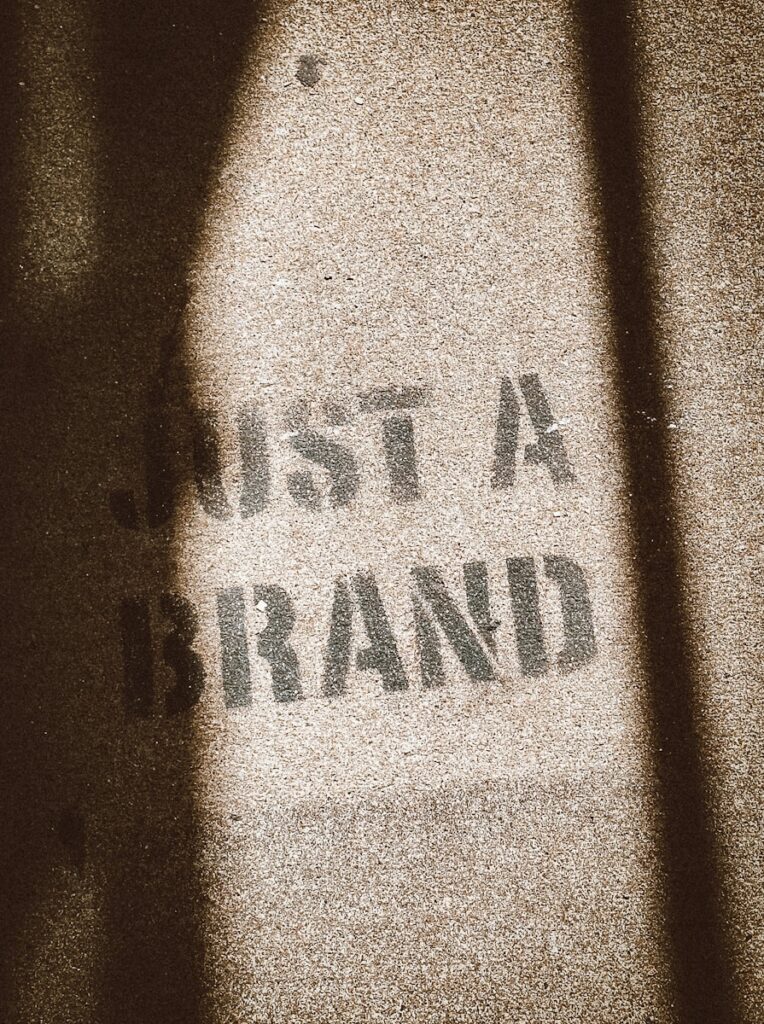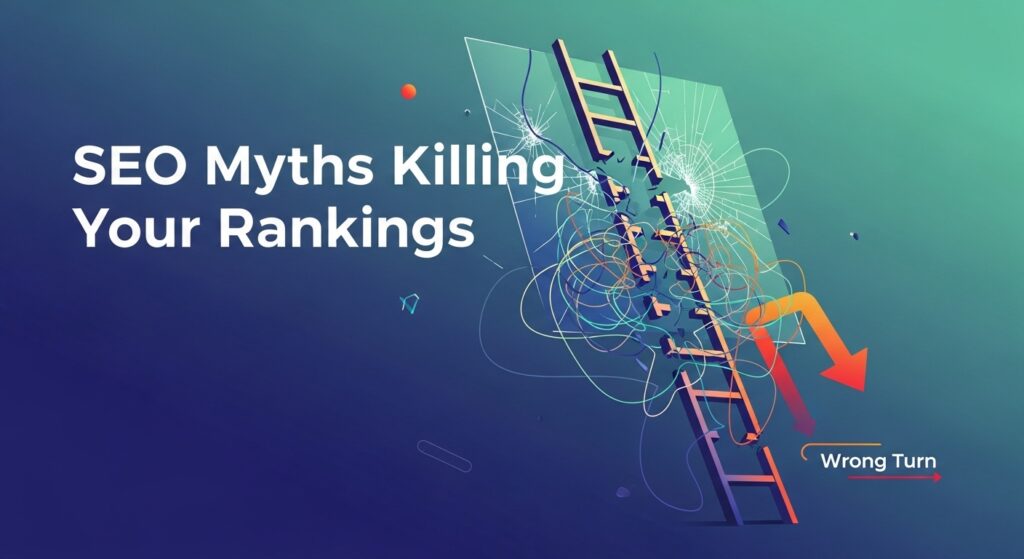Key Takeaways
- Hustle Culture is a Myth of Sustainable Productivity: The relentless pursuit of working longer hours, constantly being “on,” and glorifying exhaustion in marketing leads to diminishing returns, not increased output or quality.
- Devastating Impact on Individual Well-being: For marketing professionals, hustle culture is a direct path to severe marketing burnout, acute marketing industry stress, and a crisis in mental health marketers, manifesting as anxiety, depression, and physical ailments. It systematically erodes work-life balance marketing.
- Detrimental to Business Success: Far from driving innovation, toxic hustle culture stifles creativity, increases employee turnover, diminishes the quality of work, and creates a fearful, uncommunicative team environment, ultimately hurting an organization’s bottom line and strategic capabilities.
- Rest and Balance are Strategic Assets: Prioritizing genuine work-life balance marketing and fostering a culture of sustainable work practices leads to more engaged, creative, and resilient marketing teams, better output, and improved long-term business performance and talent retention.
- Change Requires Individual and Organizational Effort: Overcoming the pervasive nature of hustle culture marketing demands both individual boundary-setting and systemic changes from leadership, including realistic expectations, supportive policies, and a focus on outcomes over hours.
The digital world never sleeps, and neither, it seems, are many of its inhabitants. For marketing professionals, the lines between work and life have not just blurred; they’ve often been erased entirely. The constant ping of notifications, the pressure to be ever-present on social media, the relentless pursuit of the next campaign, the always-on client demands – it all feeds into a pervasive ideology: hustle culture marketing.
You see it everywhere. Influencers glorifying 18-hour workdays. CEOs boasting about sleepless nights. The mantra “sleep when you’re dead” plastered on motivational posters. In the high-stakes, fast-paced world of marketing, this culture isn’t just normalized; it’s often celebrated as the secret sauce to success. But what if this celebrated “hustle” isn’t a badge of honor but a toxic habit eating away at our well-being, our creativity, and ultimately, our effectiveness?
This extensive deep-dive will unpack why hustle culture marketing is not just detrimental but actively dangerous for marketing professionals and the industry as a whole. We’ll explore its seductive allure, its devastating impact on individual mental health marketers and marketing burnout, its insidious effects on team dynamics and business outcomes, and most importantly, how we can collectively dismantle this toxic hustle culture to build a more sustainable, creative, and ultimately, more successful future for marketing.
1. The Allure and Illusion of Hustle Culture in Marketing
Before we can dismantle hustle culture, we must understand its appeal and how it has become so deeply embedded within the marketing industry. It promises success, recognition, and an edge over the competition. But beneath this glittering facade lies a dangerous illusion.
What is Hustle Culture?
At its core, hustle culture is an ideology that glorifies relentless work, constant productivity, and the sacrifice of personal life for professional advancement. It advocates for an “always-on” mentality, where every waking moment (and often, some sleeping ones) should be dedicated to career progression. Key characteristics include:
- Glorification of Overwork: Long hours are seen as a sign of dedication and ambition.
- “Sleep When You’re Dead” Mentality: Rest, leisure, and self-care are viewed as luxuries or even weaknesses.
- Constant Connectivity: The expectation to be available and responsive 24/7.
- Fear of Missing Out (FOMO): The anxiety that if you’re not hustling, you’re falling behind.
- Identity Tied to Work: Your worth becomes synonymous with your professional achievements.
In marketing, this often translates to working through lunches, answering emails late at night, taking calls on weekends, and constantly monitoring campaign performance, social media trends, and competitive landscapes.
Why Marketing is a Prime Breeding Ground for Hustle
The marketing industry, by its very nature, is uniquely susceptible to the propagation of hustle culture. Several factors contribute to this:
- Competitive and Fast-Paced Environment: Marketing is an ever-evolving field. Algorithms change daily, trends emerge and die within hours, and competitor moves require immediate responses. This creates an inherent sense of urgency.
- Client Demands and Expectations: Agencies, in particular, often face demanding clients with tight deadlines and high expectations for rapid results. The pressure to “deliver” can quickly lead to overworking.
- Performance Pressure and Measurable KPIs: With the rise of digital marketing, everything is measurable. ROIs, conversion rates, engagement metrics – the constant need to hit and exceed these targets can fuel relentless work.
- “Always-On” Digital World: Marketers are inherently connected to the digital realm. Social media, email, analytics dashboards – these tools, while essential, make it incredibly difficult to disconnect.
- Innovation and Creativity: The industry thrives on new ideas and breakthrough campaigns. There’s an unspoken belief that more hours equate to more innovative output, pushing individuals to constantly brainstorm, iterate, and refine.
- “Passion” as a Justification: Many marketers are genuinely passionate about their work. Hustle culture exploits this passion, suggesting that true dedication means sacrificing personal time because you “love what you do.”
The Myth of Unlimited Productivity
One of the most dangerous myths perpetuated by hustle culture marketing is that more hours automatically equal more or better output. This couldn’t be further from the truth. Human beings have finite energy, focus, and creative reserves. Studies consistently show that beyond a certain point (typically around 40-50 hours per week), productivity sharply declines, and the quality of work suffers significantly.
“The idea that overwork makes you more productive is not just wrong, it’s counterproductive. Rest is not the opposite of work; it’s part of it. It’s the essential ingredient that allows for sustained high performance, creativity, and strategic thinking.”
– Cal Newport, Author of ‘Deep Work’
Constantly chasing the next trend, the next metric, the next client deliverable without adequate rest leads to superficial work, tactical execution without strategic depth, and a complete lack of genuine innovation. In a field like marketing, which thrives on fresh perspectives and creative solutions, this is a recipe for disaster.
2. The Devastating Impact on Individual Marketing Professionals
The personal cost of subscribing to toxic hustle culture is immense. It doesn’t just make you tired; it systematically dismantles your physical and mental well-being, making you less effective in the long run. The phrase “you can’t pour from an empty cup” has never been more relevant than for mental health marketers grappling with the demands of an “always-on” environment.
Marketing Burnout: More Than Just Feeling Tired
Marketing burnout is not merely fatigue; it’s a chronic state of emotional, physical, and mental exhaustion caused by prolonged or excessive stress. The World Health Organization (WHO) officially recognized burnout as an “occupational phenomenon” in its International Classification of Diseases. For marketing professionals, the specific triggers – constant deadlines, client pressure, rapid technological shifts, and the pressure to perform – make them particularly vulnerable.
Table: Burnout vs. Normal Stress in Marketing Professionals
| Feature | Normal Work Stress | Marketing Burnout |
|---|---|---|
| Feelings | Temporary, manageable tension, focused energy | Chronic exhaustion, cynicism, hopelessness |
| Engagement | Actively involved, motivated to achieve | Detachment, disinterest, lack of motivation |
| Productivity | High, though possibly under pressure | Significantly reduced efficacy, frequent mistakes |
| Emotional State | Mood fluctuations, but generally stable | Persistent irritability, anxiety, depression |
| Physical Symptoms | Occasional headaches, muscle tension | Chronic fatigue, insomnia, digestive issues, weakened immune system |
| Outlook | Optimistic about overcoming challenges | Negative, pessimistic, sense of helplessness |
| Impact on Life | Temporary disruption, still enjoy personal life | Severe erosion of work-life balance marketing, strained relationships |
Burnout in marketing often manifests as:
- Emotional Exhaustion: Feeling drained, devoid of energy, and unable to face another day.
- Depersonalization/Cynicism: Developing a detached, uncaring, or cynical attitude toward clients, colleagues, and even the work itself.
- Reduced Personal Efficacy: A feeling of inadequacy and a lack of accomplishment, despite working tirelessly.
This cycle of exhaustion and cynicism makes it incredibly difficult to tap into the creativity and strategic thinking that marketing demands. It’s a stark reminder that simply pushing through is not an effective strategy for managing workload; it’s a path to breakdown.
The Crisis of Mental Health Marketers
Beyond burnout, the sustained pressure of hustle culture marketing has a profound and alarming impact on the mental health marketers. Anxiety, depression, panic attacks, and other stress-related disorders are increasingly common. The constant need to be “on,” to innovate, to respond immediately, and to demonstrate perpetual enthusiasm creates an unsustainable mental burden.
According to a study by the American Psychological Association, 77% of people experience physical symptoms of stress, and 73% experience psychological symptoms. The marketing industry, with its unique pressures, often exacerbates these figures. American Psychological Association (APA)
The marketing profession requires a high degree of emotional labor. Marketers are expected to be positive, enthusiastic, and confident, even when facing setbacks or personal struggles. This “performative happiness” can mask deeper issues, preventing individuals from seeking help or even acknowledging their own struggles. The stigma around mental health, combined with the glorification of resilience (often conflated with silently enduring hardship), creates a dangerous environment where professionals suffer in silence.
The inability to switch off, the fear of missing out on crucial updates or opportunities, and the blurring of professional and personal identities contribute significantly to persistent anxiety and depression among marketers. This isn’t just about feeling “stressed”; it’s about a fundamental deterioration of mental well-being.
Erosion of Work-Life Balance Marketing
One of the most obvious casualties of toxic hustle culture is the complete annihilation of work-life balance marketing. The concept of distinct boundaries between one’s professional and personal life becomes a distant memory. For marketers, work infiltrates every aspect of existence:
- Always Connected: Smartphones and laptops mean the office is always in your pocket. Emails, Slack messages, and social media alerts constantly demand attention.
- Sacrificed Personal Life: Hobbies are abandoned, gym memberships lapse, social events are missed, and family time is cut short. Relationships suffer as partners and children feel neglected.
- Guilt for Resting: There’s a pervasive sense of guilt when not working. Taking a day off, going on vacation, or even simply relaxing feels like falling behind or being unproductive.
- Identity Overlap: One’s entire identity becomes wrapped up in their job title or professional achievements. Without work, there’s a perceived void.
This lack of balance isn’t sustainable. It leads to resentment, bitterness, and a profound sense of loss for one’s own life outside of work. A healthy work-life balance marketing approach isn’t a luxury; it’s a fundamental requirement for long-term health, happiness, and career sustainability. Without it, marketers are on a fast track to resentment and disengagement. Mastering time management in a digital world is crucial for regaining control.
Physical Health Consequences
The impact of hustle culture marketing isn’t confined to mental and emotional realms; it manifests physically. Chronic stress takes a severe toll on the body.
- Sleep Deprivation: The inability to switch off, late-night work, and anxious thoughts lead to inadequate or poor-quality sleep, impacting cognitive function, mood, and immune system.
- Poor Nutrition: Rushed meals, relying on convenience food, and stress-eating become common, contributing to weight gain, digestive issues, and nutrient deficiencies.
- Lack of Exercise: No time for the gym, for walks, or for any physical activity, leading to a sedentary lifestyle and associated health risks.
- Increased Risk of Chronic Conditions: Prolonged stress elevates cortisol levels, which can contribute to high blood pressure, heart disease, diabetes, and other serious health problems.
- Weakened Immune System: Constant stress suppresses the immune system, making individuals more susceptible to illness.
The irony is that hustle culture demands peak performance, yet systematically undermines the very foundations of physical health required to deliver it.
3. The Detrimental Effects on Marketing Teams and Organizations
While the individual toll is immense, toxic hustle culture doesn’t stop there. It infects entire teams and organizations, eroding their effectiveness, creativity, and long-term viability. When individual marketers burn out, the collective suffers, leading to a decline in the overall quality and impact of the marketing function.
Stifled Creativity and Innovation
Marketing thrives on creativity, fresh ideas, and innovative approaches. However, hustle culture marketing is anathema to these qualities.
- Exhaustion Kills Creativity: The brain needs downtime, rest, and space to wander to make connections and generate novel ideas. An exhausted, constantly overstimulated brain is incapable of this deep, imaginative work. It defaults to routine, safe, and often generic solutions.
- Fear of Failure: In a culture that glorifies constant output, there’s little room for experimentation or “failed” attempts, which are often precursors to breakthroughs. This breeds a cautious, risk-averse mentality.
- Lack of Diverse Input: When everyone is working non-stop, there’s less time for cross-functional collaboration, external learning, or engaging with diverse perspectives – all crucial for true innovation.
- Focus on Quantity Over Quality: The pressure to constantly produce content, launch campaigns, or hit metrics often overshadows the strategic thinking and meticulous execution required for truly impactful marketing.
Instead of groundbreaking campaigns that captivate audiences, teams stuck in toxic hustle culture often produce derivative, uninspired work that struggles to cut through the noise.
Increased Turnover and Recruitment Challenges
Unhappy, exhausted employees don’t stay. Hustle culture is a primary driver of high employee turnover in the marketing industry.
- Burnout Leads to Departures: When marketing burnout reaches critical levels, employees leave, seeking environments that prioritize their well-being.
- High Replacement Costs: The cost of replacing an employee is substantial, encompassing recruitment, onboarding, training, and lost productivity during the transition.
- Reputation Damage: Organizations known for toxic hustle culture struggle to attract top talent. Skilled marketers, especially younger generations, are increasingly prioritizing work-life balance marketing and a healthy work environment. Word gets around quickly about workplaces that chew people up and spit them out.
- Loss of Institutional Knowledge: High turnover means the loss of valuable experience, client relationships, and understanding of past campaigns, making strategic continuity difficult.
Ultimately, a toxic hustle culture creates a revolving door, making it nearly impossible to build and sustain a cohesive, experienced, and high-performing marketing team.
Diminished Quality of Work and Strategic Blind Spots
When marketers are constantly rushing, sleep-deprived, and stressed, the quality of their output inevitably declines.
- Rushed Execution: Campaigns are launched with inadequate planning, content is published with errors, and data analysis is superficial.
- Lack of Strategic Depth: The constant focus on immediate tasks and firefighting means there’s little time or mental energy for long-term strategic planning, market analysis, or competitive intelligence. Organizations become reactive rather than proactive.
- Missed Opportunities: Exhausted teams are less likely to spot emerging trends, identify new market segments, or conceptualize truly innovative solutions. They are too busy simply keeping their heads above water.
- Ethical Lapses: Extreme pressure can sometimes lead to shortcuts or decisions that compromise ethical standards, driven by a desperate need to hit targets at any cost.
The irony of hustle culture marketing is that while it aims for maximum output, it often leads to mediocre results delivered by exhausted teams, ultimately undermining the very goals it purports to achieve.
A Culture of Fear and Silence
In a toxic hustle culture, speaking up about being overwhelmed or needing a break can be perceived as weakness or a lack of commitment. This fosters an environment of fear and silence.
- Psychological Insecurity: Employees are afraid to admit they’re struggling, to ask for help, or to push back on unrealistic deadlines. This leads to hidden problems festering beneath the surface.
- Suppressed Feedback: Valuable feedback on processes, workload, or team dynamics goes unheard because individuals fear reprisal or being seen as “not a team player.”
- Lack of Empathy: When everyone is caught in the same hamster wheel, empathy for colleagues struggling with marketing industry stress can diminish, leading to a less supportive and more isolated work environment.
- Mental Health Stigma: The pressure to appear strong and resilient prevents individuals from discussing their mental health marketers struggles, perpetuating a cycle of silent suffering. Building a supportive team culture is essential to combat this.
This culture of fear is corrosive, preventing honest communication, inhibiting problem-solving, and ultimately creating a dysfunctional team dynamic that hurts both individuals and the organization.
4. The Business Case Against Hustle: Why Rest is Good for ROI
Shifting away from hustle culture marketing isn’t just about being “nice” to employees; it’s a strategic business imperative. Organizations that prioritize well-being, sustainable practices, and genuine work-life balance marketing are demonstrably more successful, innovative, and resilient. The best marketing comes from rested, engaged, and inspired minds, not exhausted ones.
Productivity Paradox: Less Can Be More
The belief that more hours equal more productivity is a myth. Scientific research consistently demonstrates that focused, well-rested work is far more effective than prolonged, fatigued effort.
- The Law of Diminishing Returns: After a certain point, each additional hour worked yields less and less productive output. Mistakes increase, focus dwindles, and creativity evaporates.
- Deep Work vs. Shallow Work: Quality output in marketing often requires “deep work” – concentrated, uninterrupted time focused on cognitively demanding tasks. Hustle culture encourages “shallow work” – constant context switching, reactive responses, and busywork – which provides the illusion of productivity without real impact.
- The 4-Day Work Week Movement: Companies experimenting with shorter work weeks often report increased productivity, employee satisfaction, and improved retention, proving that efficiency and focus can outweigh sheer hours.
- Quality over Quantity: A well-crafted, strategically sound campaign developed by a rested team will consistently outperform several rushed, generic campaigns produced by an exhausted one.
Investing in rest is investing in higher-quality output and sustainable performance, directly impacting marketing ROI.
Enhancing Creativity and Problem-Solving
Marketing’s lifeblood is creativity. The most iconic campaigns, the most impactful strategies, and the most engaging content all stem from innovative thinking. Rest, not endless work, is the incubator for these ideas.
- Incubation Period: Our brains need downtime to process information, make connections, and generate “aha!” moments. Stepping away from a problem allows the subconscious to work on it, leading to unexpected breakthroughs.
- Fresh Perspectives: When you’re constantly immersed in the day-to-day grind, it’s hard to see the bigger picture or challenge assumptions. Breaks, holidays, and hobbies provide the distance needed for fresh insights.
- Reduced Cognitive Load: Chronic stress and lack of sleep cloud judgment and limit cognitive flexibility, both essential for creative problem-solving in dynamic marketing landscapes.
- Play and Exploration: Creativity thrives in environments that allow for play, curiosity, and experimentation – elements systematically stripped away by toxic hustle culture.
To truly innovate, marketing teams need permission and time to disconnect, reflect, and engage in activities outside of work.
Building Resilient and Engaged Teams
A team that feels valued, supported, and respected for their well-being is a resilient, engaged, and loyal team.
- Higher Morale and Job Satisfaction: When employees have a healthy work-life balance marketing approach, they are happier, more motivated, and derive greater satisfaction from their jobs.
- Reduced Absenteeism: Addressing marketing burnout and stress leads to fewer sick days and improved overall attendance.
- Stronger Team Cohesion: When colleagues aren’t constantly stressed and competing in a race to the bottom, they can build stronger, more supportive relationships, fostering better collaboration.
- Increased Loyalty: Employees are more likely to stay with organizations that genuinely care about their well-being, even when other opportunities arise. This reduces the costs and disruptions associated with turnover.
Engaged employees are passionate advocates for their company and its clients, going above and beyond because they want to, not because they fear the consequences of not doing so.
Attracting and Retaining Top Talent
In today’s competitive talent market, organizations known for their supportive culture and healthy work-life balance marketing have a distinct advantage.
- Employer Brand: Companies that actively combat hustle culture marketing and prioritize employee well-being build a strong employer brand that attracts high-caliber candidates.
- Diverse Talent Pool: A healthy culture is more inclusive and appealing to a wider range of talent, including those with family responsibilities or diverse life circumstances who might be excluded by a demanding toxic hustle culture.
- Reduced Recruitment Costs: By becoming a desirable place to work, companies can reduce their reliance on expensive recruitment agencies and attract candidates organically.
- Long-Term Investment: Retaining experienced marketing professionals means a consistent, high-performing team with deep institutional knowledge, leading to more impactful and strategically aligned marketing efforts over time.
Smart organizations understand that marketing industry stress is a deal-breaker for many talented individuals, and they actively differentiate themselves by offering a sustainable and enriching work environment.
5. Reclaiming Sanity: Strategies for Individuals and Organizations
Dismantling toxic hustle culture in marketing requires a dual approach: individual professionals taking ownership of their boundaries and well-being, and organizational leaders implementing systemic changes that foster a healthier, more sustainable work environment. It’s about shifting from an obsession with activity to a focus on impact and genuine well-being.
For Marketing Professionals (Individual Strategies)
While organizational change is crucial, individuals can take proactive steps to protect themselves from the worst aspects of hustle culture marketing.
- Set Clear Boundaries:
- Define Work Hours: Establish specific start and end times for your workday. Communicate these to your team and clients, and stick to them.
- Digital Detox: Implement “no-work zones” (e.g., no emails after 6 PM, no work-related social media scrolling on weekends). Turn off notifications.
- Dedicated Downtime: Schedule non-negotiable personal time for hobbies, exercise, family, and relaxation. Treat these as important appointments.
- Prioritization and Time Management:
- The Eisenhower Matrix: Categorize tasks by urgency and importance to focus on what truly matters and avoid getting bogged down in low-impact “busywork.”
- Deep Work Blocks: Schedule uninterrupted time for complex, creative tasks. Turn off distractions during these periods.
- Saying No: Learn to politely but firmly decline tasks or projects that don’t align with your priorities or capacity. Understand that saying “no” to one thing allows you to say “yes” to what truly moves the needle.
- Delegate: If possible, delegate tasks that can be handled by others.
- Prioritize Self-Care Practices:
- Mindfulness and Meditation: Even 10-15 minutes a day can significantly reduce marketing industry stress and improve focus.
- Regular Exercise: Physical activity is a powerful antidote to stress and boosts mood and energy.
- Quality Sleep: Prioritize 7-9 hours of sleep per night. Establish a consistent sleep schedule and a relaxing bedtime routine.
- Healthy Eating: Fuel your body with nutritious food to sustain energy and cognitive function.
- Hobbies and Interests: Actively pursue activities outside of work that bring you joy and a sense of accomplishment.
- Seek Support and Mentorship:
- Talk About It: Share your struggles with trusted colleagues, friends, or family. Normalizing conversations around mental health marketers reduces isolation.
- Mentors and Coaches: Seek advice from seasoned professionals who have successfully navigated career demands while maintaining balance.
- Professional Help: Don’t hesitate to seek therapy or counseling if you’re experiencing severe marketing burnout, anxiety, or depression.
For Marketing Leaders and Organizations (Systemic Change)
True, lasting change requires a top-down commitment from leadership to dismantle toxic hustle culture and build a supportive, sustainable environment.
- Lead by Example:
- Model Healthy Boundaries: Leaders must demonstrate healthy work habits, disconnect during evenings and weekends, and take their own vacations. Don’t send emails at midnight.
- Value Rest Publicly: Acknowledge and praise employees who prioritize self-care and take breaks, sending a clear message that it’s encouraged, not penalized.
- Be Transparent About Struggles: Leaders sharing their own challenges (appropriately) can reduce stigma and create psychological safety.
- Promote Realistic Expectations and Resource Management:
- Realistic Deadlines: Set achievable project timelines, factoring in buffer time and unexpected issues.
- Manage Client Expectations: Proactively communicate with clients about reasonable response times and project scopes.
- Adequate Staffing and Resources: Ensure teams are properly staffed and have the tools they need to meet demands without chronic overwork.
- Effective Project Management: Implement robust project management tools and processes to ensure clear communication, task allocation, and workload visibility.
- Implement Clear Policies on Working Hours and “Unplugging”:
- “Right to Disconnect” Policies: Formalize policies that protect employees’ right to disconnect outside of work hours, without fear of penalty.
- Vacation Encouragement: Actively encourage and track vacation usage. Ensure coverage plans are in place so employees can truly disconnect.
- Flexible Work Arrangements: Offer flexibility in hours or location where possible, recognizing that work-life integration looks different for everyone.
- Invest in Well-being Programs and Resources:
- Mental Health Support: Provide access to employee assistance programs (EAPs), mental health resources, and subsidies for therapy.
- Wellness Initiatives: Offer workshops on stress management, mindfulness, financial well-being, and physical health.
- Dedicated Recharge Zones: Create physical spaces in the office for relaxation, quiet work, or meditation.
- Measure Output, Not Hours:
- Shift Performance Metrics: Evaluate employees based on the quality and impact of their work, achievement of strategic goals, and contributions, rather than hours clocked.
- Focus on Outcomes: Define clear, measurable outcomes for projects and empower teams to achieve them through sustainable means, rather than imposing arbitrary time metrics.
- Regular Check-ins: Implement regular, empathetic check-ins with team members to gauge workload, stress levels, and offer support, rather than just reviewing tasks.
- Foster a Culture of Psychological Safety:
- Open Communication: Create an environment where employees feel safe to voice concerns, admit mistakes, and ask for help without fear of judgment or negative consequences.
- Empathy and Support: Train leaders to recognize signs of marketing burnout and stress, and to respond with empathy and practical support.
- Celebrate Small Wins: Acknowledge and celebrate progress and successes, reinforcing positive behaviors and contributions beyond simply pushing through.
By actively adopting these strategies, organizations can transform their marketing departments from crucibles of marketing industry stress into vibrant hubs of creativity, innovation, and sustainable success.
Conclusion
The siren song of hustle culture marketing promises accelerated success, unparalleled growth, and an unbreakable competitive edge. But beneath its captivating melody lies a profoundly destructive force, systematically dismantling the well-being of marketing professionals and undermining the very foundations of creativity and strategic excellence essential for the industry.
We’ve seen how this toxic hustle culture breeds rampant marketing burnout, fuels a crisis in mental health marketers, and erodes the vital concept of work-life balance marketing. Its impact isn’t limited to individual suffering; it stifles innovation, drives talent away, diminishes the quality of work, and ultimately prevents marketing teams from reaching their full potential.
The good news is that the narrative is shifting. Forward-thinking organizations and conscious individuals are recognizing that true productivity, sustained creativity, and long-term success stem not from exhaustion, but from thoughtful work, intentional rest, and a profound respect for human limits. Prioritizing well-being isn’t a soft option; it’s a strategic imperative that yields tangible returns in engagement, innovation, and overall business performance.
It’s time to retire the outdated notion that sacrificing health for career is a virtue. The future of marketing belongs to those who embrace sustainability – not just for the planet, but for their people. Let’s move beyond the frantic chase and cultivate a culture where marketers can thrive, innovate, and contribute their best work, not because they are relentlessly hustling, but because they are well, balanced, and genuinely inspired.
Take Action: Reclaim Your Well-being and Your Craft
The conversation doesn’t end here. The journey away from toxic hustle culture requires collective effort and individual commitment.
- Reflect: Take a moment to assess your own relationship with work. Are you thriving, or merely surviving?
- Implement: Choose one individual strategy from this article (e.g., setting an email cutoff time, scheduling a non-negotiable hobby) and commit to it for the next week.
- Initiate: If you’re a leader, identify one organizational change you can champion within your team or company. Start the conversation.
- Share: Have you experienced marketing burnout or found effective ways to combat hustle culture marketing? Share your insights and strategies in the comments below.
Let’s build a marketing industry that celebrates smart work, sustainable practices, and the holistic well-being of its incredible professionals. Your creativity, your health, and your future depend on it.











